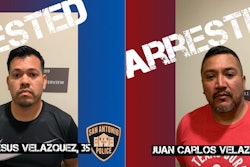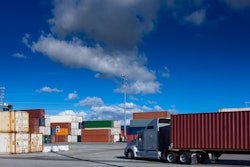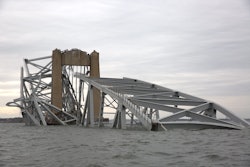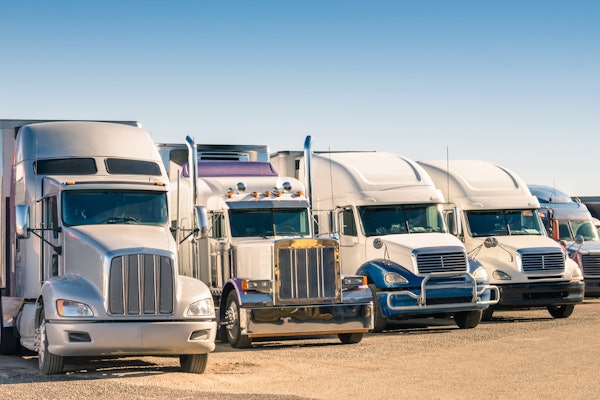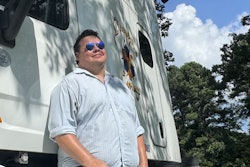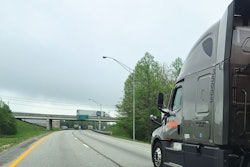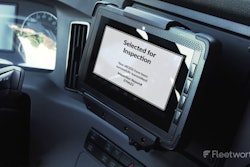The FMCSA, for perhaps just the second time in its history, forced a broker to reveal what a shipper paid them after a double brokering scam on Uber Freight's network left a carrier unpaid and complaining to the regulator.
The story begins in late 2023, when owner-operator Richard Blaga booked a load of wine heading from Tualatin, Oregon, to North Bergen, New Jersey, for a team of drivers working with his small fleet. The load promised to pay $8,850 for the 2,900-mile reefer run, but when his drivers got the paperwork, that old sinking feeling crept in.
[Related: How carriers and brokers can work to combat double brokering: Potential red flags, more]
Blaga had booked a load off of the DAT load board with a broker called Delta Dune, but he never got a pickup number. Having been double brokered a time or two in the past, he knew that sometimes brokers give the load to a few carriers, and wait to see who shows up first before handing over actual documentation. As such, he instructed his drivers to park once they got loaded and show him the paperwork.
Despite booking via DAT, the BOL noted the load came from a broker other than Delta Dune, in this case Uber Freight. Blaga was set up to haul with Uber Freight, so he called the company to get to the bottom of the discrepancy.

"Usually, when something like that isn't disclosed it's very obvious," said Blaga. "I reached out to Uber Freight when I knew there was something fishy with the load. This is the third or fourth double or triple broker I had dealt with, so what I do is grab the load and work directly with the owner, saying 'I have your load, if you want to sort this out let me know otherwise I'll take it back to the shipper.'"
Blaga sent Uber Freight a message, including the original rate confirmation from Delta Dune at $8,850. Uber Freight looked up the load and put Blaga in touch with Anthony Pasquale, the account executive at Uber Freight in charge of that load. Pasquale traced it back to a load that Uber Freight had tendered to another company, Maroon Express.
Blaga, for his part, did just about everything right in identifying a scam despite the double broker's best efforts. Tracking down the original broker can nip these situations in the bud, but only if the original broker cares to help.
"I sent Anthony all the information I had, including rate confirmation and my contact at Delta Dune," Blaga said. "I sent Anthony proof that the 'double broker' was asking Blaga Express for a copy of the BOL so that they could send it over to Anthony to show 'proof' they had the load."
"Hang tight. Trying to figure this out now. Talking to my manager," Pasquale wrote back, according to documentation of a text conversation Blaga shared with Overdrive.
Blaga said his drivers, two of his cousins, had been waiting for three hours at this point. According to Blaga, Pasquale vouched for Maroon, and told him to haul the load anyway.
"Anthony said he has been working with Maroon for a really long time and that they've never had any issues," according to Blaga, writing in a summary of events provided by his collections representation. "I said OK to Anthony, I said if you are comfortable moving the load and you are guaranteeing that I am working with people who can be trusted, and if this is how you want to move the load, no problem I will do it, as long as it is you, the original broker, making that call. Not Maroon. Not Delta Dune."
Pasquale, in that text conversation Blaga shared, urged him not to "take the load back to the shipper, that is the last thing we want to do."
From then on, Blaga communicated with Delta Dune and Maroon, updating them on the load. Yet when he arrived at the receiver on Monday, they delayed him until Tuesday, at which point he requested a $500 layover for the team.
He ultimately delivered Tuesday, and the trail went cold. Weeks passed, with no payment from Delta Dune or Maroon. Blaga got back in touch with Pasquale, who said he'd check with his manager. Blaga waited, and waited some more.
Yet he persisted. By mid-October, Pasquale was only responding to say "hang tight" and providing no real information or recourse.
"Hey man I'm trying, really. I've reached out personally and the numbers aren't in service" at the double brokers, Pasquale wrote in the text thread Blaga shared. "I escalated this and they are conducting an investigation. They are currently suspended from our platform. I'll keep trying and following up if anything comes of it you'll be the first to know."
Another month passed, and Pasquale gave Blaga an email address he said might work.
By mid-November, then, Pasquale was ghosting Blaga, too.
"I had major problems trying to get paid. Anthony was well aware of what was going on, but never really seemed interested in helping me get paid for the work completed," wrote Blaga.
He contacted Jennifer Chrestman, the regional director of business development at Tucker, Albin & Associates, a debt collection agency associated with the National Owner Operators Association.
Chrestman took on the case looking for payment, and Uber Freight finally responded with an offer of $6,000 on the load. That's despite Blaga's inclusion of the rate confirmation at $8,850 in all his communications, and Uber's employee telling him to haul the load without any mention of a reduced payday. Uber's contention, according to Chrestman, is that $6,000 represented the "real" rate Uber posted the load for, and Delta Dune's $8,850 was a fake rate meant to entice eager carriers.
For what it's worth, the average rate per mile for this lane in September 2023, when the load moved, was $1.69 linehaul plus 62 cents' worth of fuel per mile, according to DAT's rate index. That would come out to about $6,700 for the haul. Blaga had a team running the load, though, which could warrant a higher price for expedited service in line with the double broker's posting of $8,850.
Chrestman then invoked the carrier's right to broker transparency, enshrined in 49 CFR 371.3. According to Chrestman, Uber said she'd need a subpeona to get the transaction records, including the shipper's rate, something she's never heard before in all her years of debt collection.
Uber continued to hold strong to its rate around $6,000, until Blaga filed a complaint with FMCSA through its National Consumer Complaint Database, which routes to the household-goods-moving investigative section, and FMCSA contacted Uber.
Finally, under pressure from the regulator, Uber relented, releasing the paperwork but not budging on the price.
Chrestman said the broker transparency, in this case, didn't reveal any huge margin for Uber Freight, unlike the last time FMCSA and an owner-operator's efforts revealed a 44% margin on a TQL-brokered load, according to the owner-op.
[Related: Kevin Rutherford's MATS talk derailed by broker transparency argument]
Chrestman stuck to her guns, saying Uber "walked into this with their eyes wide open" to the possibility of double brokering, and therefore Blaga is entitled to the agreed-upon rate. Turns out, Uber did pay Maroon Trucking $6,000. Uber's offer to pay Blaga $6,000 as well would have generated a loss on the load for the broker, but taking the carrier's perspective, Blaga and Chrestman still sought the agreed-upon rate.
According to Chrestman, she and Uber's legal team remain at a stalemate with Blaga unpaid, and an admission that they paid the fraudulent carrier. That's where things get tricky. Double brokering isn't a new problem, but its rapid rise since the pandemic has put legacy institutions and industry newcomers in a puzzling position.
"They'll pay the full amount" said Chrestman. "Think of the cost of litigation. There's not a court in the country that would lay this at my client's feet with the FMCSA's documentation and support."
Eventually, according to Chrestman, Uber Freight did offer to pay the full $8,850, but now Chrestman wants interest, her client's layover fees, and Uber Freight to pay the collection fee after stonewalling for six months.
"Why should my client have to come out of pocket?" she said.
[Related: Sometimes, going to the shipper works when a broker doesn't pay]
Even if Uber wanted to do right by the carrier, how can it protect itself from fraud? What if Delta Dune had posted the load for $50,000? Would Blaga have the right to demand full payment, or should there be some consideration that he should have known the rate was false?
Overdrive reached out to Uber Freight and gave them the opportunity to dispute any of Blaga or Chrestman's claims, including the interaction with Pasquale, and the company did not dispute them.
Instead, the broker issued a statement on double brokering generally, promising to do more in the future.
"Since summer of 2023, we've been able to reduce fraud within our network by over 60% to an all-time low for Uber Freight, while the industry has been experiencing an increasing rate of fraudulent activities," a spokesperson for the company said. The broker has been reticent to share any details on their approach to double brokering, saying they fear this information could be abused by bad actors.
Sources within NOOA who knew about the dispute told Overdrive that Uber Freight staff at the Mid-America Trucking Show were all knowledgeable about Blaga's case, and that they vowed to settle it soon.
That Blaga ended up speaking to an account executive (in sales and therefore with close relationships on the shipper side of business) and not an operations person (someone better versed on the carrier side of things) probably didn't help matters.
Multiple comment requests to FMCSA, seeking to know why they intervened in this case and if they might intervene in other cases, have as yet gone unanswered despite the agency promising a response. For now, FMCSA has taken its own steps to combat freight fraud and double brokering with a registration system overhaul and a pledge to audit all 800,000 FMCSA-registered entities, even while pushing any broker transparency rulemaking back at least to October 2024.
As Blaga's case shows, though, the agency is still moving, albeit quietly, on the broker transparency front.
[Related: Broker margins, rates data, transparency: What owner-operators really think]





